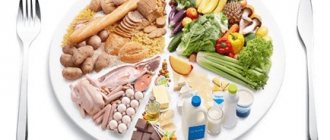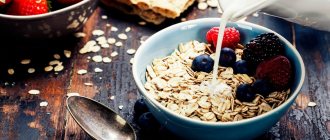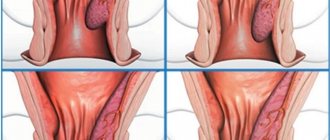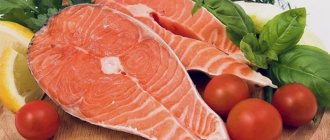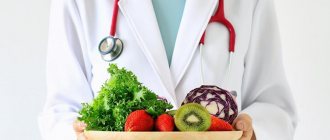Boiled chicken breast and lean crackers - it is precisely this meager diet that many mothers remember with sadness during breastfeeding. Some explain the restrictions by the possibility of allergies in the child, others by the likelihood of colic, and still others are convinced that a strict diet will make breast milk more useful.
However, most doctors agree that a nursing woman's diet should be as varied and balanced as during pregnancy: during lactation, the body requires a large amount of different nutrients for mother and child. Therefore, after childbirth, we are not talking about diet, but only about some features of a nutritious and varied diet. Let's talk about what you can and can't eat while breastfeeding in each food category.
Do I need to follow a special diet?
A nursing mother does not need to follow any diet. Try to eat a balanced diet and eat healthy foods to maintain lactation and feed your baby.
During breastfeeding, as in everyday life, a balanced diet that includes fruits, vegetables, whole grains, high protein foods, and foods rich in calcium and minerals is important. To stay fit and to maintain lactation, a nursing mother may need 300–500 extra calories per day. Here are some snack options: a sandwich made from whole grain bread with a piece of cheese, a banana, an apple, a cup of yogurt.
Why is breastfeeding beneficial?
To begin with, it is worth noting all the benefits that breastfeeding gives to a newborn. The point is in the composition and other features of mother’s milk:
- It always has the optimal temperature.
- It contains all the necessary nutrients, vitamins and microelements.
- It is able to adapt to the needs of the child, changing its composition and nutritional value over time, as E. Komarovsky writes about this in “The Beginning of Your Child’s Life.”
As a result, the child receives a sterile and safe product that is suitable specifically for him. Of course, we should talk about safety only when the mother adheres to the appropriate diet. Molecules of food eaten by a woman through breast milk enter the baby's body.
What to eat while breastfeeding
A breastfeeding mother needs to get enough certain nutrients from food, since they are passed on to the baby along with mother's milk. Further from the article you will learn what is healthy to eat while breastfeeding.
Calcium rich foods
One of the most important minerals in the diet is calcium, which is responsible for the health of our bones. A breastfeeding mother should receive 1000 mg per day (1300 mg for teenage mothers). Studies have shown that women lose about 3-5% of their bone mass while breastfeeding. To compensate for this expense, you need to eat enough calcium-rich foods. Try to have three servings of dairy products in your diet every day, for example: a cup of milk, a few pieces of cheese, a cup of yogurt. There are also plant sources of calcium:
- juices fortified with calcium
- tofu
- kale, spinach, broccoli
- beans
- breakfast cereals fortified with calcium
If you don't think you're taking in enough calcium, your doctor may recommend taking a calcium supplement (not containing oyster shells, as they contain lead).
Foods rich in folic acid
For the healthy development of the baby, a nursing mother needs to receive at least 400 mcg of folic acid per day. Your doctor can recommend a suitable vitamin supplement for you. Try to eat foods rich in folic acid: spinach, citrus fruits, meat, chicken liver and a variety of legumes. You can also buy breads, cereals and cereals fortified with folic acid.
Vitamin D Rich Foods
In addition to calcium, vitamin D is needed to maintain healthy bones. One of the most effective ways to replenish vitamin D is to spend time in the sun. But this is not safe given the risk of cancer, and is not always practical.
Try to include foods rich in vitamin D in your diet:
- salmon
- mackerel
- fortified milk or orange juice
- yogurt
The daily dose of vitamin D recommended by doctors is from 400 to 1000 IU. For example, 100g of cooked salmon is 477 IU, a can of tuna in water is 154 IU, and a cup of fortified orange juice is 137 IU. In addition to vitamin D, salmon, tuna and mackerel are rich in omega-3 fatty acids, which are essential for the growth and development of a child's brain and vision. Adequate intake of vitamin D is also necessary for the absorption of calcium in the digestive tract. Your pediatrician will be able to recommend a vitamin D supplement for your baby. Vitamin D is extremely important for exclusively breastfed babies, as if there is not enough of it in breast milk, there is a risk of rickets - soft and weak bones.
Protein-Rich Foods
Breastfeeding mothers need to eat 150–200 grams of protein per day. Protein is needed for the formation and repair of body tissues. To get the right amount, try to eat two to three servings of lean meat, chicken or fish (one serving is about 100 g) per day. Other sources of protein include: eggs (6 g protein per egg), nuts (15 g protein per 100 g walnuts), legumes (8.9 g protein per 100 g chickpeas). If you have a family history of peanut allergies (which are also high in protein) and you have eaten peanuts, be careful to monitor your baby's reaction after feeding.
Iron
Some of the most iron-rich foods are lean meats and green leafy vegetables. Iron is also found in fish, iron-fortified breakfast cereals, and poultry (except white meat). Iron is best absorbed from animal sources. Your doctor may recommend that you take an iron supplement to ensure that you get enough of this mineral during lactation.
Water
When you're breastfeeding, you may feel thirstier. It is important for a nursing mother to drink enough water every day. Here's an easy way to do it: Drink a glass of water with every feeding.
Second postpartum trimester
During this period, you can expand your food intake, but nutrition should still be correct and balanced. While at 3-6 months of breastfeeding, the mother is allowed to:
- seasonal vegetables and fruits in raw form;
- lean borscht seasoned with tomato juice or pasteurized tomatoes;
- nuts (except pistachios and peanuts);
- rabbit meat;
- homemade cherry and apple jam;
- lingonberry, cherry and currant fruit drinks;
- honey in small quantities;
- freshly squeezed juices from pumpkin, carrots, beets, apples;
- fresh onions;
- fresh and dried spices: basil, lemon balm, thyme, tarragon, celery, oregano.
Stop foods are still not allowed! If your child has a rash or gastrointestinal disorders, contact your pediatrician and take a food diary.
What foods should you limit or avoid eating while breastfeeding?
During pregnancy, you were very careful in your diet and you had to limit yourself in some ways. You may have expected that with the birth of your baby, all the “prohibitions” will be lifted, but there are still some foods and drinks that you should limit or avoid while breastfeeding.
Seafood High in Mercury
Fish is an important part of a healthy diet as it is rich in protein and omega-3 fatty acids. But some types of fish contain large amounts of mercury, which is dangerous to the nervous system of infants and young children. Therefore, you should not eat the following species: shark, swordfish, king mackerel and tilefish. What kind of fish can you eat? Here are the types of seafood that are safe for a nursing mother to eat: canned tuna (no more than 150 g of albacore tuna per week, as it contains more mercury), shrimp, salmon, pollock and catfish. If you enjoy fish that are caught where you live, check your local guidelines for safe eating. For more information about mercury levels in different types of fish, read the recommendations from Rospotrebnadzor.
Drinking alcohol while breastfeeding
Long-term and regular consumption of alcohol can reduce breast milk production and negatively affect the baby's health. Alcohol also changes the taste of milk, and the baby may refuse to breastfeed and be capricious. Therefore, it is better to avoid drinking alcohol while breastfeeding. If you sometimes want to drink alcohol, limit yourself to one drink. You can drink it after feeding/expressing milk and wait at least two hours before your next feeding/expressing - that's how long it takes for the alcohol to break down in your body.
Drinking caffeinated drinks while breastfeeding
Typically, while breastfeeding, you can drink up to three caffeine-containing drinks a day without harming your baby. If this amount is exceeded, the baby may react with anxiety and irritability. Keep in mind that caffeine is not only found in coffee. Caffeine is found in some types of tea, carbonated drinks, and chocolate. Keep this in mind when calculating your daily caffeine intake.
Drinking drinks high in sugar
Try to limit or eliminate high-sugar drinks, including soft drinks, juice and iced tea. Instead, drink plenty of water.
Rules for introducing complementary foods
Age is not the only guideline for reviewing a baby’s diet. Before introducing your son or daughter to new products, it is necessary to take into account the characteristics of psychomotor development :
- general activity of the child;
- interest in “adult” food;
- ability to swallow pieces of solid food;
- the ability to take new foods from a spoon rather than through a pacifier.
You should not focus on the appearance of teeth - some babies erupt their first teeth too late, and the need for a varied diet arises much earlier.
How to introduce complementary foods correctly:
- At the first stage, introduce your child to new food with a liquid consistency. The volume of the first portion is about 5 ml (g).
- Give the product from a clean teaspoon - at the very tip - to teach the baby to take food with his lips and move it in the mouth.
- Include the next product in your diet only after 1-2 weeks - this time is necessary to adapt to the new food.
- Plan complementary feeding for the first half of the day, so that in the second half you can monitor the body’s reaction (whether an allergy develops, how the stool changes). If there are no adverse reactions, every day you can gradually increase the volume of the product to the recommended amount.
- As you get used to liquid complementary feeding, offer your baby solid food - at about 9-10 months. If your baby refuses to eat food in pieces, try again a little later.
- Don't use too much sugar in your dishes. The baby should experience a variety of taste sensations, including sour and bitter.
Try to develop a positive perception of food in your child. Don't turn feeding into torture. You can offer the same dish 8 to 10 times. If a child refuses complementary feeding for the first time, this does not mean that he does not like the dish. Even those foods that the baby has repeatedly refused can later become favorites. Research shows that it can take up to 15 attempts to form such a habit [2].
About vitamins
Your doctor may recommend that you continue taking the vitamins you took during pregnancy or another supplement until you finish breastfeeding. Iodine is another important mineral during breastfeeding. The daily dose for breastfeeding mothers is 150 mcg, your doctor will be able to recommend a suitable supplement for you. If you follow a vegan or vegetarian diet, your doctor may recommend that you take vitamin B12. This vitamin, essential for a baby's cognitive development, is found in greater quantities in animal protein than in vegetables. Your doctor may also recommend an omega-3 supplement if you don't eat fish.
Food reactions, intolerances and allergies in children
The baby may have a reaction to breast milk after certain foods and drinks from the mother's diet. For example:
- After eating beans, regular cabbage, broccoli or cauliflower, your baby may have gas and become restless.
- After eating spicy food, your baby may not like the taste of breast milk.
- Your baby may become restless and fussy if you have consumed too much caffeine.
- The baby may also develop an allergic reaction to the following foods in the mother's diet: cow's milk, soy, wheat, corn, oats, eggs, tree nuts, peanuts, fish or shellfish.
Signs of an allergic reaction in a child:
- frequent spitting up or vomiting
- abdominal pain
- bloating
- baby pulls up his knees in pain
- blood or mucus in the stool
- hard stool
- skin rash or inflammation
If your child has difficulty breathing or their face is swollen, call an ambulance immediately. If you think your baby is not feeling well after feedings, discuss this with your pediatrician. Sometimes it can be useful for a mother to keep a food diary to monitor her baby for any allergies or intolerances, excessive gas, discomfort or signs of colic. And then you can share the results of your observations with your pediatrician. The doctor may prescribe an elimination diet, which means the mother will need to eliminate certain foods from her diet and see if the baby's reaction to breast milk changes.
FAQ
- While breastfeeding you should:
avoid seafood with high mercury content - try not to drink alcohol
- Limit consumption of caffeinated drinks such as coffee, tea and soda
A mother’s balanced and healthy diet during breastfeeding is one of the first building blocks in the child’s successful development and a way for the mother to take care of herself. Some foods and drinks should be consumed with caution or completely avoided, as they can negatively affect milk production and the baby's health. It will be easier to take care of your baby if you have a supply of everything you need on hand. Shopping ahead of time can be not only useful, but also profitable - for example, if you buy Pampers diapers at a discount.
